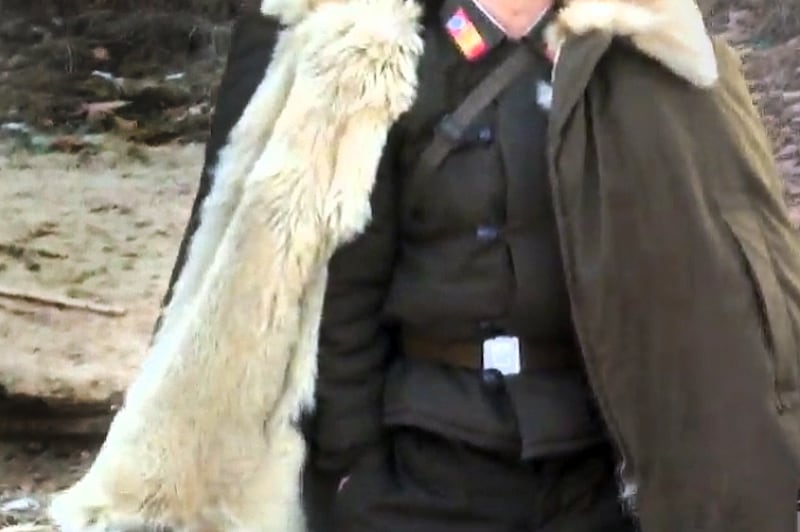Read a version of this story in Korean
North Korean authorities are confiscating winter coats lined with dog fur -- considered a luxury item -- from civilians and giving them to under-supplied soldiers, residents told Radio Free Asia.
The reasons for this campaign that began last month seem to be two-fold: To provide warm gear for army personnel in North Korea’s frigid winters, and to keep civilians from looking like they are wearing winter military uniforms.
“Social security agents have been stopping men wearing dog fur coats on the streets and confiscating them on the spot,” a resident in South Pyongan province, north of the capital Pyongyang, told RFA Korean on condition of anonymity for personal safety.
“This is the first time they’ve done something like this,” he said. “They say it is because civilians cannot wear military uniforms.”
In fact, aside from their warmth, the coats’ similarity to military uniforms is one reason why they are popular with civilians, he said.
“It symbolizes authority,” the resident said.
RELATED STORIES
‘Rooster hairstyle,’ see-thru sleeves now banned in North Korea
North Korea bans leather coats to stop citizens from copping leader’s iconic look
North Korea punishes women for wearing shorts, declaring them ‘capitalist fashion’
But few North Koreans can afford them. Only the wealthy can buy the specially-made coats. High quality dog fur-lined coats can cost up to 1 million won (US$50), more than the annual salary at most government-assigned jobs, the resident said.
“They are the best winter clothing because the entire inner layer is lined with dog skin and fur,” he said. “They are expensive and can only be purchased from a specialty clothing maker.”
Supply chain collapse
North Korea’s nearly 1-million strong military has been chronically under-supplied for decades.
Ever since the 1991 collapse of the Soviet Union, which provided aid to the country, North Korea’s economy has suffered, and the military has struggled to equip its own personnel.

In principle, North Korean soldiers should receive summer uniforms once a year and winter uniforms every two years, but supplies are erratic.
Things are so dire that last year the military began requiring soldiers to return their uniforms when they are discharged, so that they could be given to other soldiers.
With the military lacking adequate clothes and soldiers shivering in the cold, it’s a bad look for wealthy civilians to be out and about in their toasty dog fur-lined coats, the resident said.
“Only one in 50 men wear these dog fur-lined coats in the city of Unsan,” he said. “I’ve seen it worn by merchants who drive from place to place selling goods, and by the husbands of wealthy women.”
With men required to work for a pittance at government-assigned jobs, most families are really supported by the women, who run small businesses. Women who become successful and wealthy, or who were already born into wealth, can afford to splurge on an expensive coat for their husbands.
Not for the average soldier
In the northwestern province of North Pyongan, the dog fur-lined coats are now a rarity, a resident there told RFA on condition of anonymity.
Civilians “used to show off by wearing their dog-fur coats, but the authorities started confiscating them,” he said. “These kinds of coats are not supplied to the average soldier, but to officers and soldiers stationed at guard posts close to the border with South Korea.”
He said the authorities ask the civilians how they can wear such a luxury when there are soldiers guarding the front line that shiver in tattered second-hand uniforms.
“The soldiers have to participate in winter training,” he said, which means they have to “lie on their bellies on frozen ground, so these dog fur coats are essential to them.”
He said the agents confiscating the coats tell their owners that their clothing will go military units on the front.
“Some of these men protest against this, but they hold their tongues because they don’t want to be punished for speaking out.”
Translated by Claire S. Lee. Edited by Eugene Whong and Malcolm Foster.
